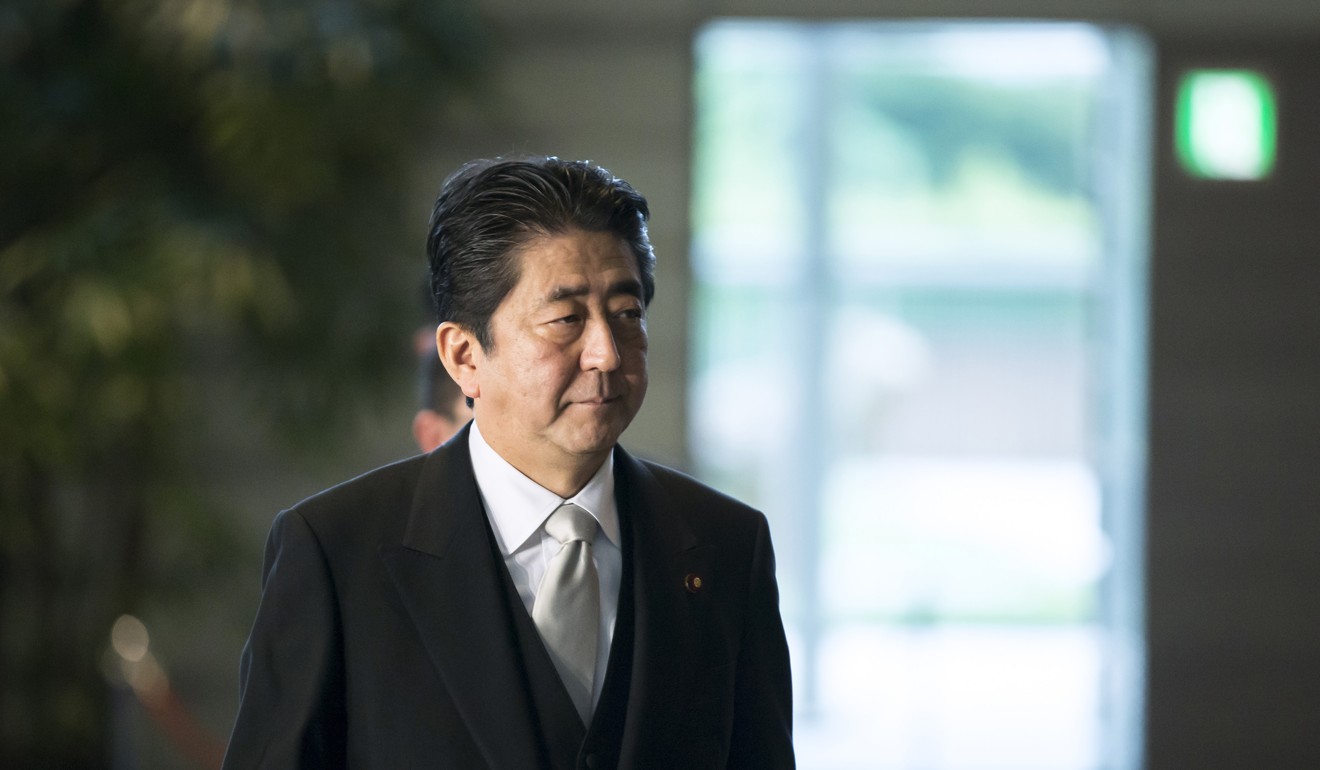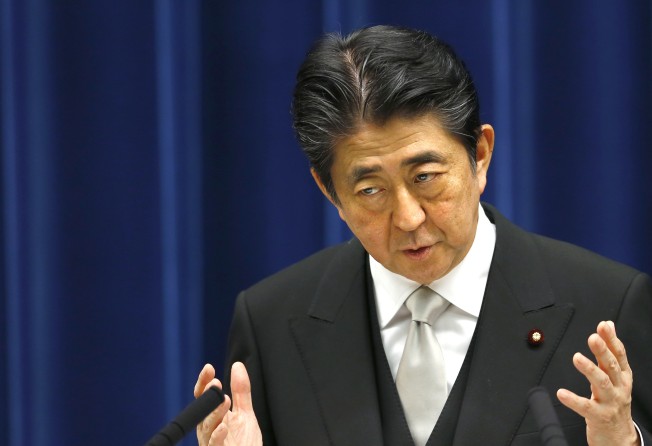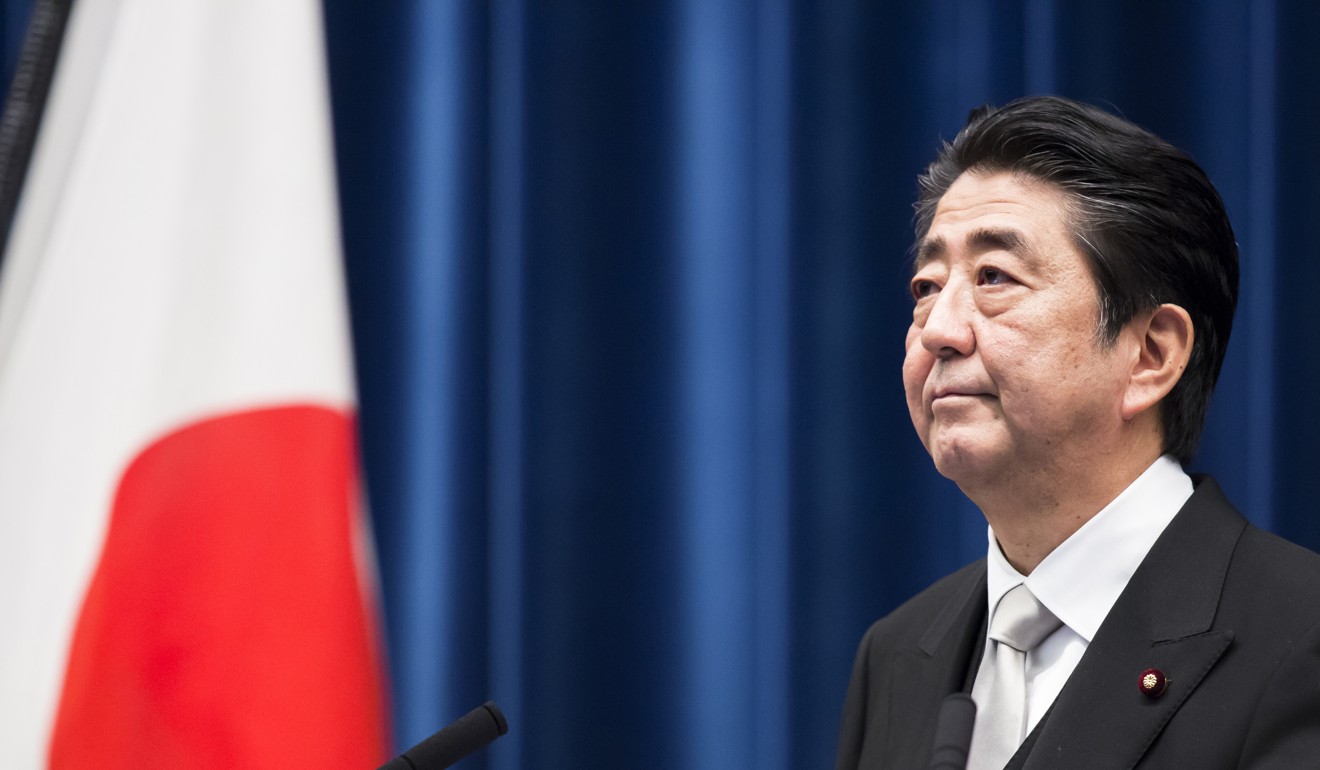
Japan’s Abe sticks to tax hike plan for October 2019

Prime Minister Shinzo Abe said on Saturday his government remains committed to the plan to raise the consumption tax from the current 8 per cent to 10 per cent in October 2019 as part of efforts to restore Japan’s fiscal health.
Abe made the remark on a television programme after reshuffling his cabinet and key posts in the Liberal Democratic Party this week in an effort to restore his plunging approval ratings. He highlighted an economic revival and fiscal rehabilitation as his government’s main mission.
Under the initial plan, the consumption tax was going to be raised to 10 per cent in October 2015 but Abe has already postponed the plan twice to try to ensure a solid economic recovery.
Japan’s economy is on a moderate recovery track for now, expanding for a fifth straight quarter in the first quarter of 2017, the longest stretch since six quarters of continued growth between January 2005 and June 2006.
He also cited during the programme achieving a primary balance surplus by fiscal 2020 and reducing the public debt ratio to nominal gross domestic product as two major goals.
“I would like to steer the economy toward those two goals,” Abe said, indicating he will urge the business community to use retained earnings for raising wages so that it will stimulate consumption and lead to a positive cycle of the economy.
Asked about his attempt to realise constitutional reform, Abe said the reform proposal needs to be formulated by the ruling party.

Abe added he will try to involve a wider range of lawmakers including opposition members in discussions to secure a majority by the time his proposal is submitted to parliament.
“I have caused a stir, but it will be difficult to gain a majority in a referendum unless everybody is on the same page and pushes forward with the plan,” Abe said.
In May, Abe abruptly proposed making explicit the existence of the Self-Defence Forces in the language of the war-renouncing Constitution, which currently makes no mention of it.
His suggestion drew sharp responses from opposition parties that are against amending the constitution, especially Article 9 which stipulates that the Japanese people “forever renounce war” and that “land, sea, and air forces, as well as other war potential, will never be maintained”.

The premier had said in recent months he wants his party to submit the proposal during an extraordinary session likely to be convened in the fall. He had hoped the resulting amendment would come into force in 2020.
But Abe on Thursday suggested he has changed his plan to submit a reform proposal in the next extraordinary Diet session. The suggestion follows a plunge in approval ratings for his cabinet, and the LDP’s massive loss of seats in last month’s Tokyo Metropolitan Assembly election after a string of scandals.
According to the latest Kyodo News poll conducted after the cabinet reshuffle, the approval rating for Abe’s cabinet has risen 8.6 points since mid-July to 44.4 per cent.
The poll also showed 53.4 per cent of respondents remain opposed to amending the Constitution under Abe and 34.5 per cent support it.
The premier suggested during the programme a general election would not necessarily be required to assess public response to constitutional reform before submitting the proposal to parliament.
Revising the Constitution “will be determined by a national referendum. It is different in nature from a law that is enacted by parliament alone,” he said on the programme.
Regarding when the lower house should be dissolved for a general election, he said, “I have absolutely no idea. We have to produce the outcome of economic recovery and regain the trust of the people.”